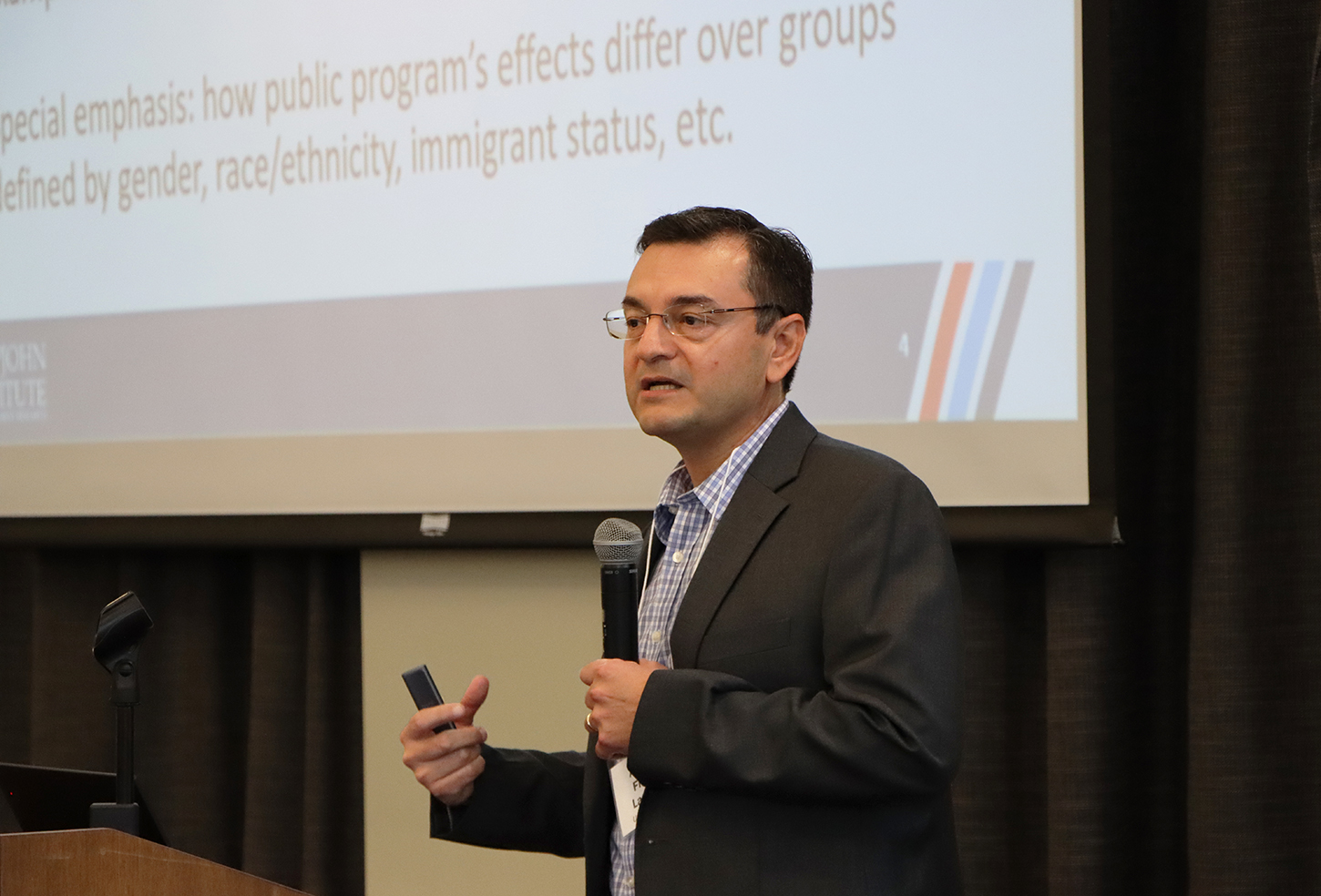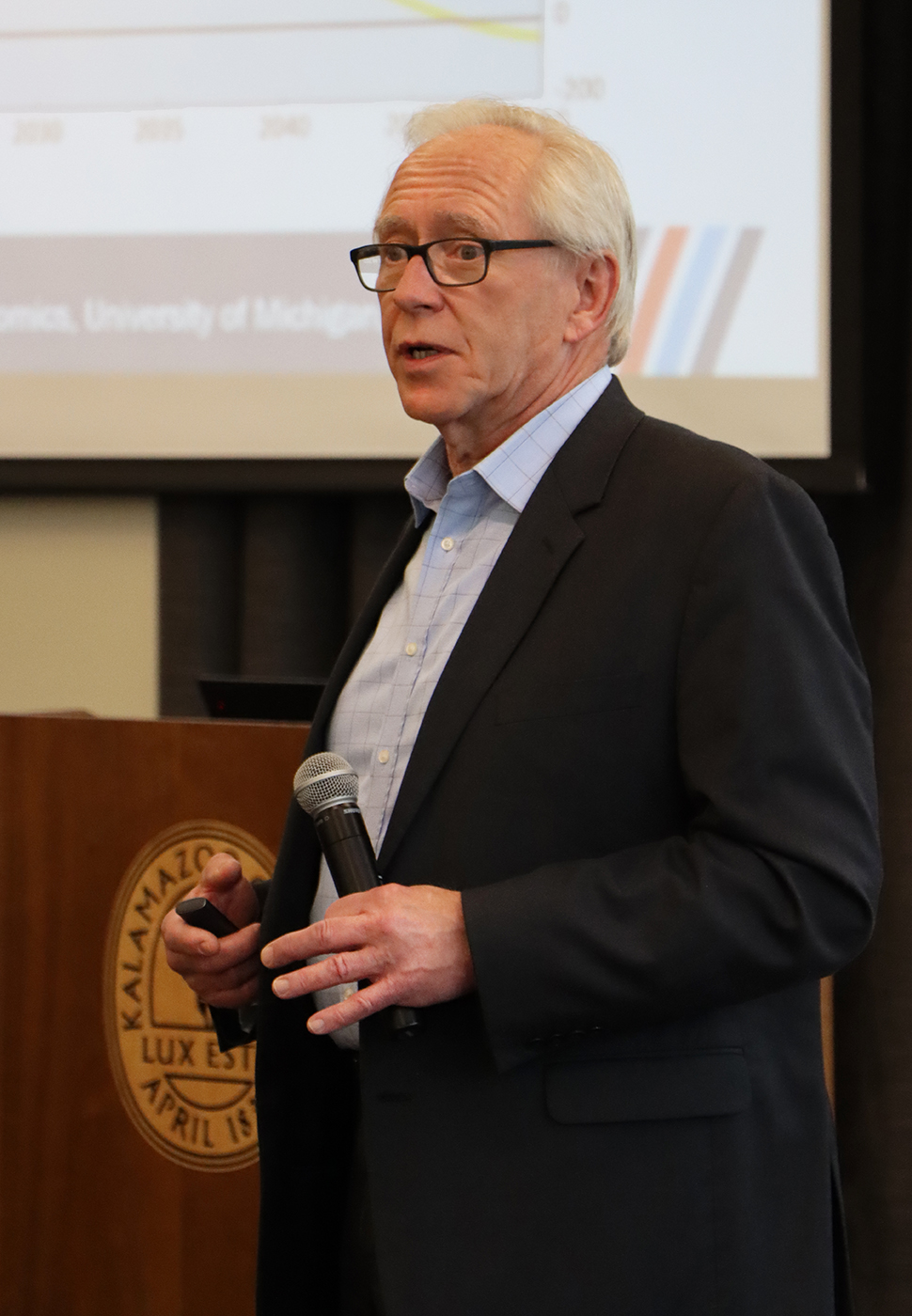
The Sept. 18 Upjohn Institute Community Breakfast featured a discussion of the effects of artificial intelligence technologies on the labor market and an introduction of a new Upjohn Institute leader. The quarterly breakfast took place at Kalamazoo College, with local elected officials and leaders of local business, education and nonprofit sectors in attendance.
Upjohn President Mike Horrigan introduced Alfonso Flores-Lagunes, who became the Upjohn Institute’s vice president and director of research in May, after having served as a professor of economics at the Maxwell School, and a senior research associate in the Center for Policy Research, at Syracuse University. Flores-Lagunes described how his labor economics research and applied work in evaluating public programs pays special attention to how effects differ by factors such as gender, race and ethnicity, and immigration status.

Labor markets have recovered strongly from the pandemic recession, Flores-Lagunes said in his overview of local economic conditions. However, unemployment rates remain higher than the national average in the Upjohn Institute’s four-county workforce program service area. He expects that a reduction in interest rates by the Federal Reserve will help alleviate unemployment once their effects filter to the local economies.
Horrigan presented a talk on the potential impacts of artificial intelligence, or AI. He began by setting the context for demographic growth over the next decade, with the state and national forecast colored by lower birth rates and Baby Boomer retirements. As declining populations struggle to produce all the goods demanded, greater automation can follow, Horrigan said. If trends continue, employment growth will slow and the need for more training will increase.

Artificial intelligence will affect different types of jobs differently, Horrigan said. Automation will make certain jobs obsolete but many other job descriptions will grow to incorporate emerging technologies.
“What it’s going to do is change the capital-to-labor ratio,” he said.
Keynote speaker Scott Powell serves as the state’s chief data officer in the Michigan Center for Data and Analytics. The center helps state officials use data to inform their decision making.
Sometimes that involves artificial intelligence, Powell said, but often it doesn’t. “The media goes to fancy stuff like AI but the vast majority of what we do is nothing fancy. It’s pulling out that data and analyzing it.”
Many processes now described as AI have been developed over years and even decades, Powell said, pointing to the predictive modeling behind Career Explorer, a system MCDA developed in collaboration with the Upjohn Institute. “It was us saying, ‘Michigan Works! has these folks coming in; what can we do to give a tool to case managers to help them make the decision of how to help the person sitting across from them.’ ”
As state agencies adopt new technologies, Powell said, they still need to meet state standards. That includes scrutinizing processes for bias.
“We don’t want this to reinforce discrimination that already exists,” Powell said. “Since we launched these models, this is a part of what we do – we review the output of the models for any kind of equity concerns.”
